Career & Tools
Boston College History Department Chair and UCSB alum Robin Fleming (BA, History, 1977; Ph.D., History, 1984) – whose research and teaching specialties are early medieval Britain and material culture – has been awarded a prestigious $625,000 MacArthur Foundation Fellowship, commonly known as a “Genius” grant.
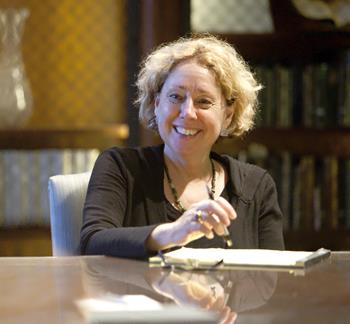 Every person deserves to have their story told, Robin Fleming believes. In her own life story, one chapter stands out. It was a defining moment that day on the beach at Campus Point in the late 1970s. The UCSB undergrad was studying medieval history under visiting Professor Denis Bethell at the time, and the assignment was to read a book by the famous early medieval historian and English monk known as the Venerable Bede.
Every person deserves to have their story told, Robin Fleming believes. In her own life story, one chapter stands out. It was a defining moment that day on the beach at Campus Point in the late 1970s. The UCSB undergrad was studying medieval history under visiting Professor Denis Bethell at the time, and the assignment was to read a book by the famous early medieval historian and English monk known as the Venerable Bede.
"I brought my copy of the Venerable Bede to the beach," recalled the San Francisco Bay Area native. "And I read about 8th century England. That was it - I was totally hooked. I think I'm the only early medieval historian who ever got hooked by reading Bede on the beach."
These days Dr. Fleming's study space is no longer the Santa Barbara sand but rather an office at Boston College, where she has been a history professor for nearly 25 years. And that passion for medieval history she has pursued all these years has now earned the History Department Chair a prestigious $625,000 MacArthur Foundation Fellowship, commonly known as a "Genius" grant.
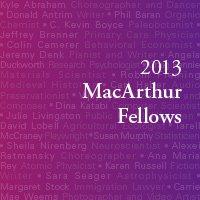 UCSB alum Dr. Fleming (BA, History, 1977; Ph.D., History, 1984) - whose research and teaching specialties are early medieval Britain and material culture - is one of 24 Americans recently announced as 2013 recipients of this honor, issued annually by the John D. and Catherine T. MacArthur Foundation. The MacArthur Foundation website states that the "no strings attached" fellowship "is a five-year grant to individuals who show exceptional creativity in their work and the prospect for still more in the future. The fellowship is designed to provide recipients with the flexibility to pursue their creative activities in the absence of specific obligations or reporting requirements. There are no limits on age or area of activity."
UCSB alum Dr. Fleming (BA, History, 1977; Ph.D., History, 1984) - whose research and teaching specialties are early medieval Britain and material culture - is one of 24 Americans recently announced as 2013 recipients of this honor, issued annually by the John D. and Catherine T. MacArthur Foundation. The MacArthur Foundation website states that the "no strings attached" fellowship "is a five-year grant to individuals who show exceptional creativity in their work and the prospect for still more in the future. The fellowship is designed to provide recipients with the flexibility to pursue their creative activities in the absence of specific obligations or reporting requirements. There are no limits on age or area of activity."
Dr. Fleming joins other UCSB alums who have won the MacArthur "Genius" award, including MIT Professor Angela Belcher (BA, Creative Studies, 1991; Ph.D., Chemistry, 1997), a 2004 honoree; and the founder of Dos Pueblos High School Engineering Academy in Goleta, teacher Amir Abo-Shaeer (BS, Physics, 1996; MS, Mechanical Engineering, 1998; and M.Ed., Education, 2001), a 2010 recipient.
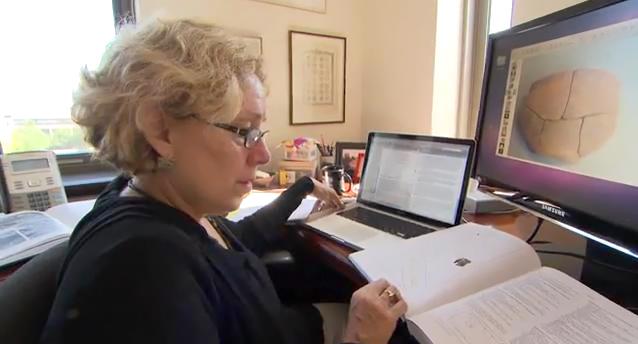 Because individuals can't apply for the MacArthur grant and both the nominators and the judging committee are kept secret, the phone call to inform Dr. Fleming that she had won came as a surprise.
Because individuals can't apply for the MacArthur grant and both the nominators and the judging committee are kept secret, the phone call to inform Dr. Fleming that she had won came as a surprise.
"I actually thought I was getting an obscene phone call," she recalled. "Because the person said: 'Can we speak confidentially?'" She spent the rest of the day wondering if she had imagined the episode, but when she received hard-copy confirmation of her selection the next day, she knew it was real.
At Boston College, Dr. Fleming teaches courses on late-Roman and early medieval history; the Vikings; ancient and medieval historical writing; and material culture. Her latest book, "Britain After Rome: The Fall and Rise of the Middle Ages," takes a look at Britain in the century before and after the fall of Rome, examining how Roman ways of life, status, identity, and burial changed in the wake of the Roman economy's collapse and the unraveling of ties to the wider Roman world.
Dr. David Marshall, the Michael Douglas Dean of Humanities and Fine Arts and Professor of English and Comparative Literature, praised UCSB's History Department as well as the honoree.
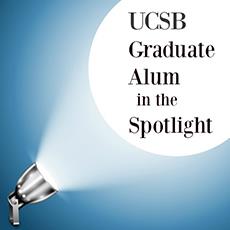 "We take special pride in the fact that Robin Fleming has both a B.A. and a Ph.D. from UC Santa Barbara," Dean Marshall said. "The History Department is known for its attention to teaching, mentoring, and inspiring students, as well as its prize-winning scholarship. I imagine that our interdisciplinary environment, in medieval studies and beyond, also made some contribution to Professor Fleming's innovative approach and methodology. I hope that her exciting work will inspire new generations of UCSB students."
"We take special pride in the fact that Robin Fleming has both a B.A. and a Ph.D. from UC Santa Barbara," Dean Marshall said. "The History Department is known for its attention to teaching, mentoring, and inspiring students, as well as its prize-winning scholarship. I imagine that our interdisciplinary environment, in medieval studies and beyond, also made some contribution to Professor Fleming's innovative approach and methodology. I hope that her exciting work will inspire new generations of UCSB students."
Dr. Elizabeth Digeser, Chair of UCSB's Department of History and Professor of Roman History, said Dr. Fleming's achievements are encouraging and inspiring to both grad students and faculty.
"Robin Fleming received her Ph.D. from our department when we were starting to get national recognition for our graduate program in general, as well as our program in Medieval History," Professor Digeser said. "When she took the position at Boston College, she was both an inspiration to current graduate students and a confirmation for faculty that UCSB's best students could work and teach anywhere. And now Robin's most recent research - in reaching toward material culture to explore the lived experience of ordinary people in early medieval Britain - is inspiring in a new way, for she is at the crest of a new wave in scholarship that is carrying us all forward."
Stephanie Priest saw that spark of genius in Fleming when the two became friends as roommates for three summers in Isla Vista in the 1970s. "There was just no doubt in my mind she was pretty special back then in terms of her academic abilities," said Priest, who was a Political Science undergrad at the time.
Priest described herself as "your basic student" and more "into the fun" of college life at UCSB, unlike her roommate Fleming. "Robin was just such a cut above everyone. And you could tell she had something about her that could be called genius or brilliance."
Priest, who recently retired from a career in aerospace and lives in Carpinteria, said Fleming "knew what she wanted to do. She had known what she wanted to do since she was little. And, you know, some people, their careers choose them and other people get to choose their careers. And she's one of those."
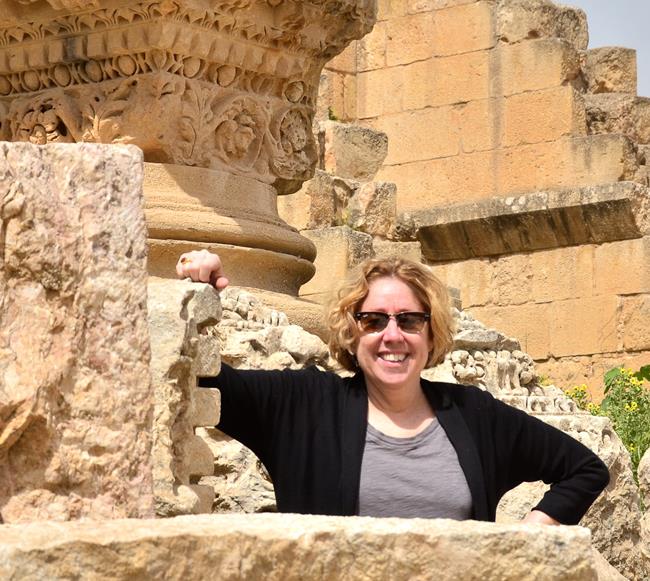 Dr. Fleming chose the medieval history career path while she was at UCSB. "I was always interested in British history," she said. "I took Latin when I was a (college) freshman as well." She called Professor Denis Bethell, who was visiting from University College, Dublin, a "fantastic undergraduate teacher" who sparked her fascination with early medieval British history during her sophomore year. In her junior year, she studied abroad in England. Because of Professor Bethel's influence, Dr. Fleming said, she took only medieval history classes from then on.
Dr. Fleming chose the medieval history career path while she was at UCSB. "I was always interested in British history," she said. "I took Latin when I was a (college) freshman as well." She called Professor Denis Bethell, who was visiting from University College, Dublin, a "fantastic undergraduate teacher" who sparked her fascination with early medieval British history during her sophomore year. In her junior year, she studied abroad in England. Because of Professor Bethel's influence, Dr. Fleming said, she took only medieval history classes from then on.
Dr. Fleming also praised two other UCSB professors for their advice and mentorship - Harold (Hal) Drake and C. Warren Hollister, one of the founding members of the History Department.
Professor Drake "always insisted that we be interesting," said Dr. Fleming, referring to topics of research. He would tell his Ph.D. students that the "so what" in whatever they were studying matters a lot.
It's not enough to gather a lot of information on a problem and then write the dissertation, she said he would tell his students. "It's important to be engaged in some sort of historical debate or controversy and really try to answer a question that's interesting to a lot of people," Professor Fleming said. "And I think that's critical for graduate students."
It's also vital, she added, for grad students to pick their advisors carefully. "This is really hard work and it's important to find a person who you can apprentice yourself to and who is really going to give you a lot of attention and a lot of guidance," she said. "Because it's hard to learn otherwise." Dr. Fleming "had a famously good advisor" in the late UCSB History Professor Hollister.
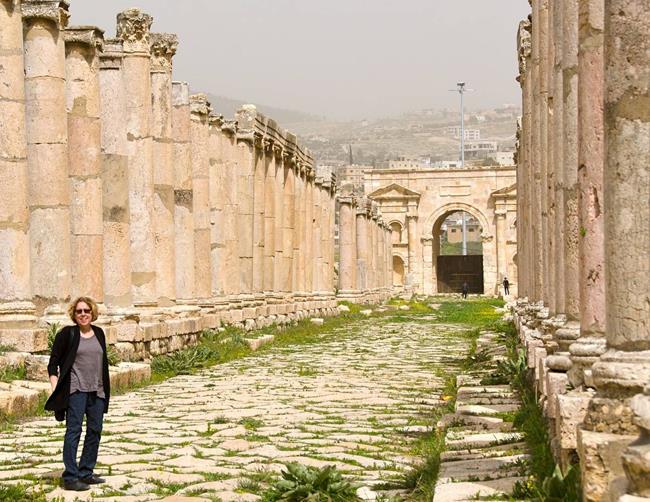 Dr. Fleming said the MacArthur fellowship will afford her the time and freedom to pursue research she is passionate about.
Dr. Fleming said the MacArthur fellowship will afford her the time and freedom to pursue research she is passionate about.
She said there isn't much textual evidence in the period she studies, between the fall of Rome and the early Middle Ages. "As a matter of fact, there's a lot of it we don't know anything about through texts," she said in a MacArthur Foundation video interview (you can view the video below). "So instead of looking at texts, which is what historians do and are trained for, I look at material evidence, that is the evidence that's been found by archaeologists. I'm really interested in using whatever evidence is available to tell the story of people who lived in the past."
She intends to complete a book that she has started. "But I also hope to do some collaboration with people outside the discipline of history," Dr. Fleming said. "I hope to co-author things with people who are not historians but who happen to be interested in the same time period I am. Because I think writing together with people of different disciplines is the way forward. And I think it will help all of us think different thoughts about the past."
Interdisciplinary work is central to Dr. Fleming's research, and it's something she feels strongly about.
"I think that all of us who are active researchers can see how unsatisfactory lines between disciplines are," said Professor Fleming. "It doesn't matter if you are a biologist or a chemist or a physicist or a historian or an archaeologist. You can really, really feel it. It can be very difficult in universities. We're all silo'ed in our departments and we all read our own disciplinary journals and books."
Dr. Fleming hopes for change. "The disciplines were determined a long time ago. The line between archaeology and history was determined a long time ago. I don't think it works very well anymore. And I think we should work to revisit that and rethink it."
Now that she's got that weighty title of "Genius," does Professor Fleming feel any pressure to produce something monumental during her MacArthur fellowship?
"I actually feel liberation," she said. "I feel like this is an opportunity, not a challenge I have to live up to. So I feel much more optimistic and not burdened by it, but liberated by it."
Whatever she decides to pursue, it will definitely include storytelling. "I think that everybody deserves a history," Professor Fleming said. "And I think it's incumbent upon historians to figure out how to tell people's stories even if we don't have them represented in texts."